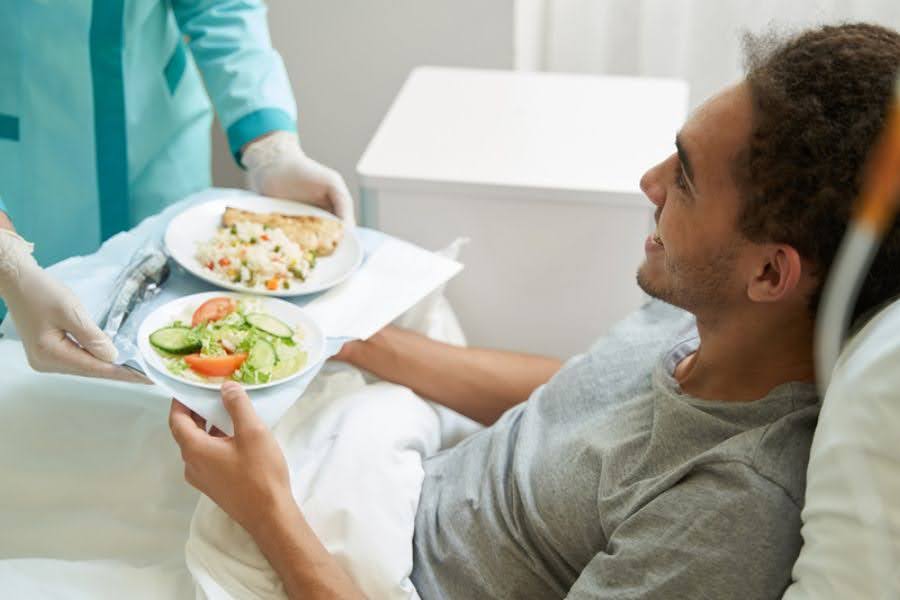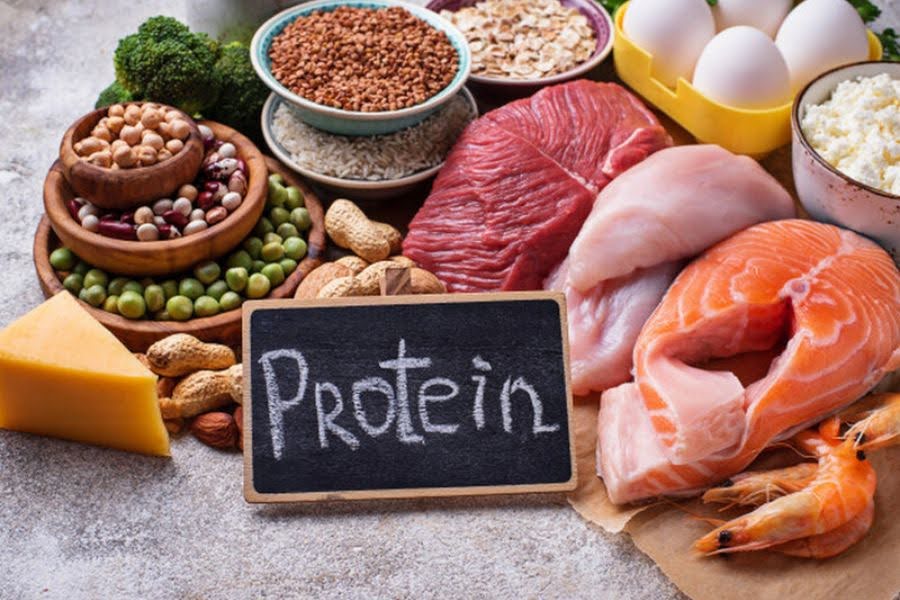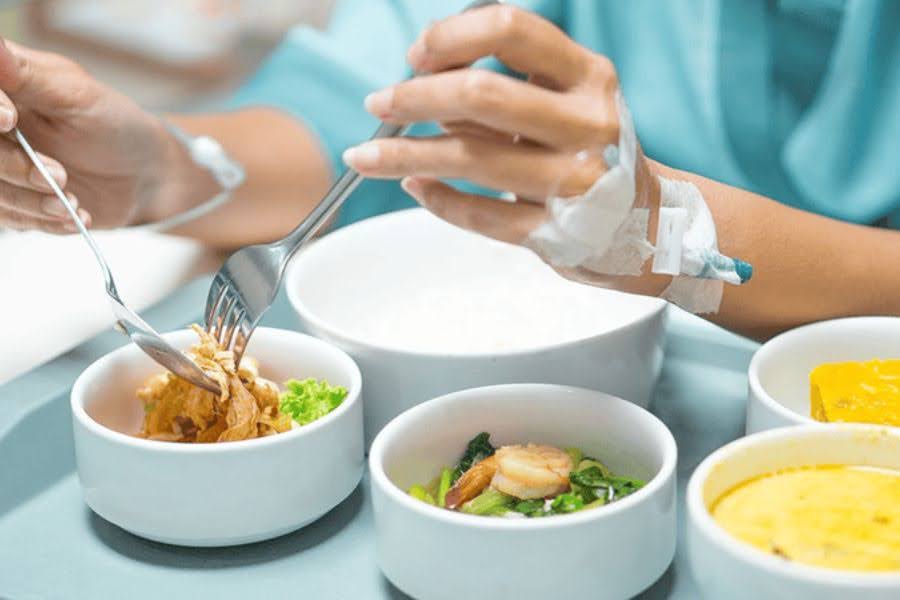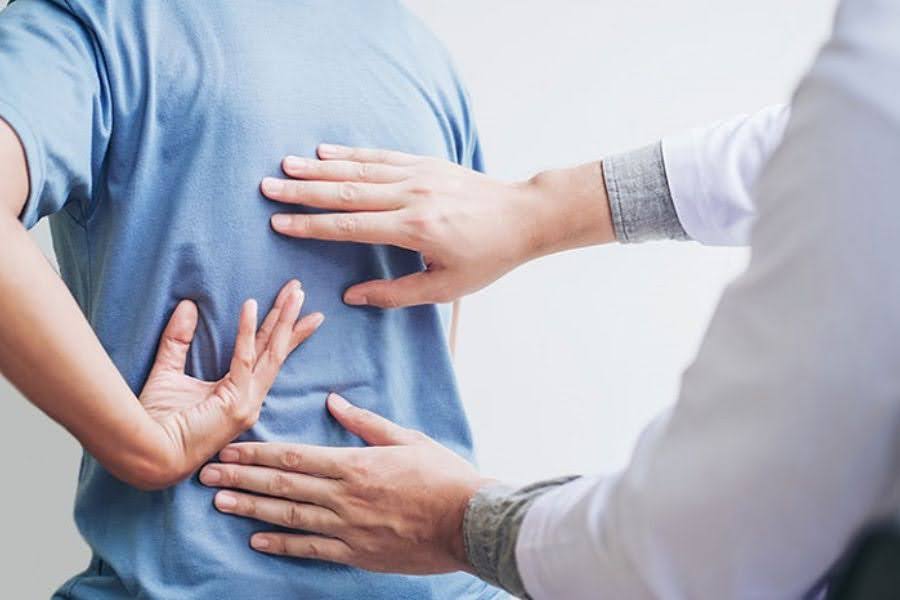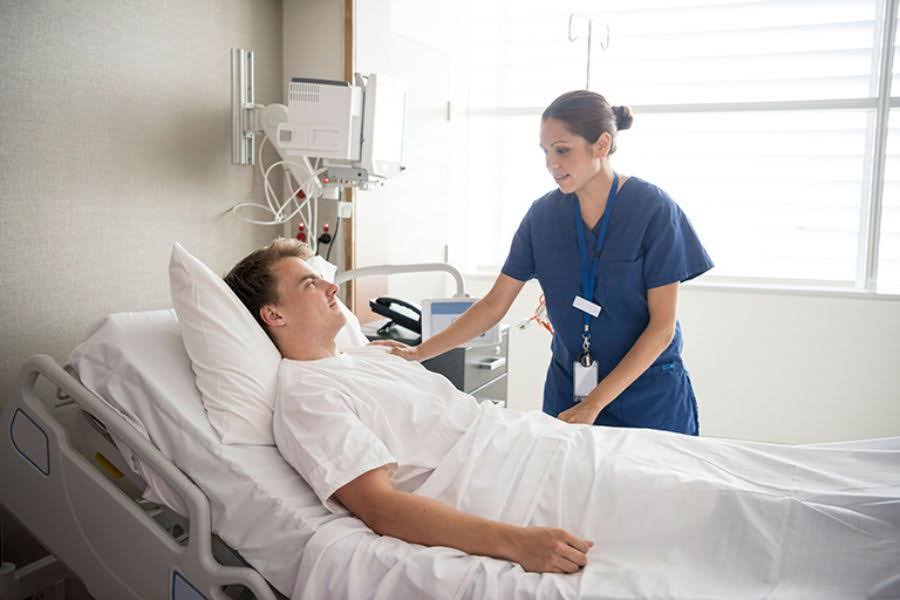What to eat after disc herniation surgery, spine is a keyword that is searched a lot. Post-surgery care for spinal screw surgery requires a lot of attention to nutrition. This will help shorten the recovery time for patients. So what should you eat and what should you not eat after spinal surgery ? All questions will be answered by H+ in the article below.
1. Principles of eating after disc herniation surgery
Adhering to scientific dietary principles helps the body recover quickly. To achieve the best results, patients need to pay attention to the following nutritional regimen:
- Eat a high-quality diet: Build a nutrient-rich menu to support a quick and effective recovery.
- Easy-to-digest foods: Prioritize soft, easy-to-digest foods rich in liquids such as soup and thin porridge to reduce nausea and vomiting after surgery.
- Increase fiber and water: Add more fiber from green vegetables, fruits and drink enough water to maintain a healthy digestive system, reduce the risk of constipation – a common condition after surgery.
Follow the principles for quick recovery
Adherence to post-operative care principles for spinal screw surgery helps patients recover better, reduce complications, and improve overall health.
2. What to eat after spinal surgery?
What to eat after spinal surgery? What to avoid after spinal surgery ? Below are foods to eat after spinal screw surgery.
Protein rich foods
Protein plays an important role in promoting the formation of new tissue and shortening the healing time of surgical wounds. To support the recovery process, patients should prioritize supplementing easily digestible and healthy protein sources such as:
- Beans: Soybeans, green beans, black beans provide vegetable protein and essential nutrients.
- Fish: Salmon, mackerel, and other fish rich in omega-3s provide protein while also helping to reduce inflammation and promote overall health.
- Mushrooms: Mushrooms are rich in protein, vitamins and minerals needed for cell regeneration.
- Milk and dairy products: Fresh milk and unsweetened yogurt are sources of high-quality protein, helping the body recover quickly.
Protein-rich foods are good for people who have just had spinal surgery.
Adding these protein-rich foods helps improve tissue regeneration and boost health after surgery.
Foods rich in calcium and phosphorus
If you do not know what to eat after disc herniation surgery, you should add foods rich in calcium and phosphorus. Calcium and phosphorus are two essential minerals that help maintain bone density and support the recovery process after disc herniation surgery. Supplementing these two substances in a balanced ratio is very important to improve bone health. You should add the following foods:
- Milk and dairy products: Fresh milk, yogurt, and cheese provide large amounts of easily absorbed calcium and phosphorus.
- Shellfish: Shrimp, crab, clams, and oysters are not only rich in calcium but also support overall health.
- Green leafy vegetables and root vegetables: Bok choy, cabbage, broccoli and other green leafy vegetables are excellent sources of plant-based calcium.
- Nuts and seeds: Cashews, walnuts, chestnuts, almonds are rich in both calcium and phosphorus.
- Bone broth: A natural, easily absorbed source of calcium, while also providing collagen to aid tissue regeneration.
Food groups rich in vitamins and minerals
After a herniated disc surgery, vitamin supplementation is essential to aid in the recovery process. Here are some important vitamins and their corresponding nutrient-rich food sources:
- B vitamins: B vitamins play an important role in blood formation, improving blood circulation and boosting immunity. This vitamin also helps transport anti-inflammatory factors to damaged areas, supporting the regeneration of new tissue. Patients should add lean meat, whole grains, mushrooms and avocados to their diet.
- Vitamin C: Vitamin C helps strengthen the immune system, is a powerful antioxidant, and helps heal damage to bones, joints, and discs. At the same time, this vitamin also helps surgical wounds heal quickly. Foods rich in vitamin C include oranges, tangerines, guava, bell peppers, strawberries, and kiwi.
- Vitamin D: Vitamin D helps the body absorb and metabolize calcium and phosphorus, helping to strengthen bone density. Patients can supplement vitamin D through foods such as fish, mushrooms, yogurt and whole grains.
- Vitamin K: Vitamin K participates in the synthesis of essential proteins, promoting the recovery process after surgery. Food sources rich in vitamin K include dairy products, animal liver, pork and asparagus.
- Vitamin E: Vitamin E helps reduce inflammation, strengthens the immune system, and aids in wound healing. This vitamin is found in carrots, tomatoes, papaya, and olive oil.
Add vitamins and minerals to your diet
Foods containing Glucosamine and Chondroitin
Glucosamine and chondroitin are two important compounds that help improve spinal health and support the recovery process after disc herniation surgery. These compounds have the ability to stimulate the production of mucus, heal the fibrous capsule, inhibit enzymes that cause cartilage degeneration, and increase the mobility and elasticity of the spine.
To supplement glucosamine and chondroitin, patients should add nutritious foods to their diet such as:
- Peanuts, almonds: Provide a natural source of glucosamine and support cartilage regeneration.
- Animal and fish cartilage: Rich in chondroitin, helps protect and restore cartilage structure.
- Bone broth: Rich in nutrients that help heal damaged bones and joints.
Supplementing the above foods not only helps improve spinal condition but also enhances overall health.
Other food groups
After disc herniation surgery, adding the following food groups not only helps the body recover faster but also protects and strengthens the spinal structure:
- Foods rich in Omega-3: Omega-3 has the ability to stimulate the body to synthesize collagen, support the recovery of damage and increase the durability of the fibrous disc. Foods rich in Omega-3 include salmon, walnuts, pumpkin, and cauliflower.
- High-fiber foods: Fresh fruits and vegetables are rich in fiber, which helps improve digestion and prevent constipation, a common problem after surgery. They also help control weight, reduce pressure on the spine, and make patients more comfortable during recovery.
- Magnesium-Rich Foods: Magnesium is a mineral that is needed to maintain calcium density in bones, which helps strengthen bone structure and aid in healing. Magnesium-rich food sources include yogurt, green leafy vegetables, beans, and avocados.
Add more fiber, foods containing omega 3 and magnesium
Incorporating these food groups into your daily diet not only provides adequate nutrition but also optimizes recovery, helping patients return to normal life soon.
3. What foods should you avoid after spinal surgery?
After disc herniation surgery, in addition to paying attention to the foods that need to be supplemented, patients also need to abstain from certain foods to support the recovery process, reduce inflammation and pain. Here are some foods that need to be abstained from after disc herniation surgery .
- Foods containing fructose and purines: Animal organs, red meat, and pickles contain a lot of fructose and purines, which can make pain worse and increase inflammation. If you are still concerned about what to avoid eating after spinal surgery, you should limit your consumption of foods containing fructose and purines.
- Foods rich in Omega-6: Eating too many foods rich in Omega-6 (industrial vegetable oils, fast food) can cause the body to retain water, hinder blood circulation and affect the recovery process.
- Spicy, sweet or salty foods: Spicy, sweet or salty foods can increase inflammation, making pain worse and hindering the absorption of calcium and minerals. These are foods to avoid after disc herniation surgery .
- Greasy foods: Fried foods and foods high in fat will reduce calcium density in bones, increase the risk of osteoporosis and negatively affect the structure of the spine.
- Other foods: To reduce inflammation of the surgical wound, patients should avoid frozen and canned foods, sticky rice, seafood and vegetables with high starch content such as water spinach and sweet potato leaves.
Abstain completely to speed up the recovery process.
4. 4 Notes after disc herniation surgery
In addition to a reasonable diet, patients after disc herniation surgery need to pay attention to the following points to support the recovery process:
- Rest and light exercise: Proper rest is needed to help the surgical wound heal quickly. However, it is also necessary to perform light movements every day to avoid muscle stiffness. Perform exercises for people who have had spinal surgery to speed up the recovery process.
- Use pain relievers: Follow your doctor’s instructions on using pain relievers to reduce discomfort. If you experience side effects such as nausea, discomfort, bleeding or stomach pain, stop taking the medication and notify your doctor immediately for appropriate medication adjustment.
- Heat compress: Heat compresses on the lower back help relax muscles and reduce muscle spasms, helping to relieve pain and improve muscle stiffness after surgery.
- Regular check-ups: Attend follow-up visits as directed by your doctor to monitor your recovery progress and adjust your treatment as needed.
Pay close attention when caring for patients after surgery.
5. Post-spinal surgery and disc herniation care plan
Post-surgery care for patients with disc herniation is an important process that helps speed recovery and minimize complications. When implementing a post-surgery care plan for patients with spinal surgery, there are a few things to keep in mind:
- Proper rest: After surgery, patients should rest completely for 1-2 weeks, avoiding heavy work and strenuous exercise. Rest helps the incision heal and avoid infection or excessive pain. Risks such as cold or excessive numbness should be closely monitored and the doctor should be notified immediately if there are any unusual symptoms.
- Wound care: Help the patient keep the wound clean and dry for the first 4 days. After removing the stitches, continue to care for it according to the doctor’s instructions.
- Adjust sitting posture: Use a chair with a firm backrest for the patient to sit in and do not let the patient sit for more than 30 minutes. When lying down, choose a flat mattress and do not lie in one position for too long. Stand in the correct posture to reduce stress on the spine.
- Rehabilitation exercises: Perform exercises for spinal surgery patients according to the doctor’s instructions after surgery. Especially in the first month, patients should rest a lot and avoid walking to protect the spine. After 3 months, patients can start light sports such as swimming and walking, but should avoid twisting, twisting the spine or lifting heavy objects.
- Proper nutrition: You need to pay attention to the patient’s diet, should supplement adequate nutrition, especially increase calories, protein, calcium and vitamin D to support the process of bone and joint recovery and wound healing for the patient. Divide meals into 4-6 meals/day to help the digestive system work better.
Scientific plan for post-surgery care of patients with spinal cord injuries
Post-surgery care for spinal screw surgery requires attention to nutrition. Patients need to understand what to eat and what to avoid after spinal surgery to help the recovery process go more smoothly. They should abstain from certain foods and practice gentle exercises to help the spine stabilize and heal faster.
Hopefully, the information that HPLUS shares can help readers know what to eat and what not to eat after spinal screw surgery. To make an appointment with a good doctor at Hplus, please contact the hotline: 1900.3366 for the best support.
**Note : This article is not a substitute for medical examination, diagnosis and treatment.
 +84 24-7306-9889
+84 24-7306-9889  Booking
Booking 



